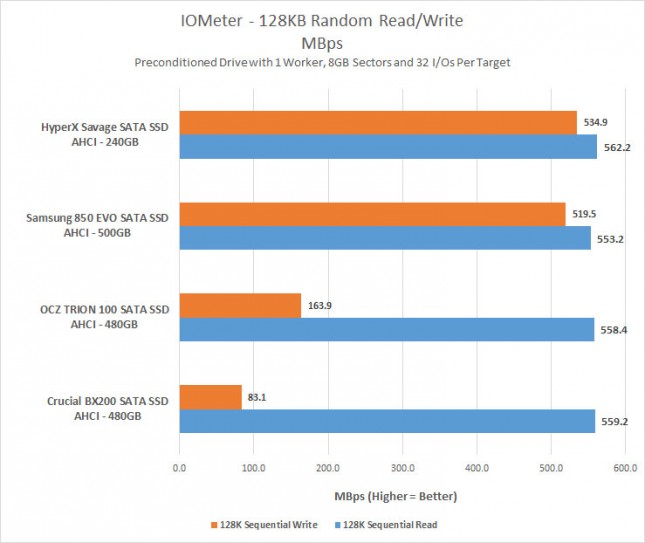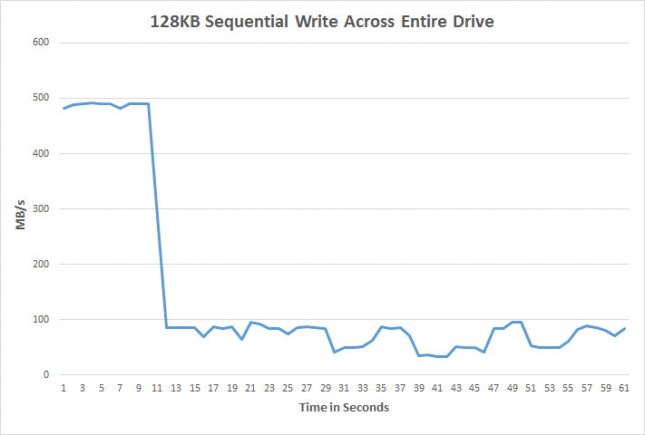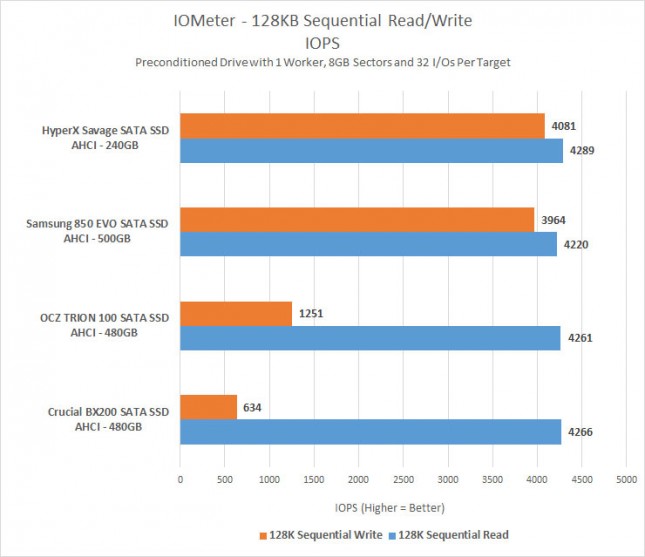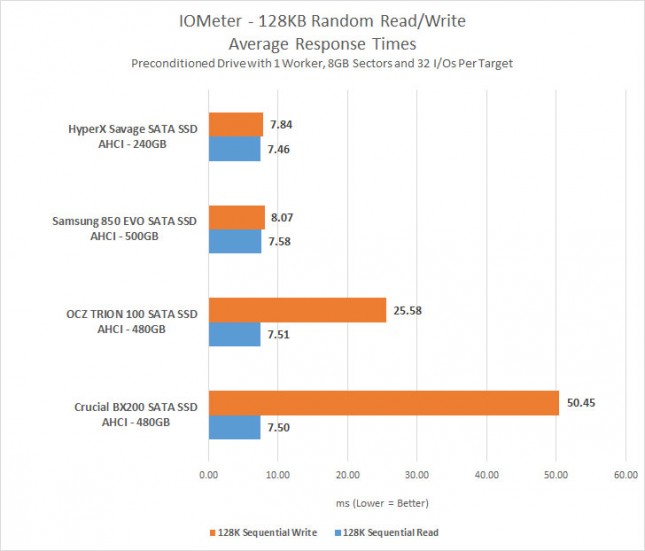Crucial BX200 480GB SATA 2.5-Inch SSD Review
IOMeter Sequential Performance
Starting here in April 2015 Legit Reviews has brought back synthetic IOMeter v1.1.0 testing to our high-end Solid-State Drive reviews as we feel that the canned benchmarks no longer show enough of the performance picture nor do they expose many of the heat issues that we are starting to encounter on M.2 PCIe SSDs. We start out testing each drive with IOMeter, but first we prepare the drive. This is done by using Parted Magic or Samsung Magician to complete a full Secure Erase each and every drive. Next we use IOMeter to prefill the drive by performing the industry standard 128KB, aligned, sequential write workload across the entire drive for a period of 20 minutes. Once the drive is conditioned we run our saved sequential test profile that runs our 128KB test for two minutes without any idle time in between the tests. The queue depth is set to 32 as we feel with NVMe drives starting to come out that we need to increase our IO depth.
The 128KB Sequential Read/Write test is done primarily to make sure the drives we are testing meet or surpass the manufacturer specifications for sequential Read/Write performance. The Crucial BX200 480GB SSD is rated at up to 5400 MB/s sequential read and 490 MB/s sequential write. We were able to top our drive out at 559 MB/s read and just 83.1 MB/s write.
The reason that the write performance is so low is that after 11 seconds of continual 128KB writes to the drive the SLC cache is filled up and then the performance plummets down under 100 MB/s and at times slows all the way down to 33 MB/s. It should be noted that before the drives cache filled up that it was running right around the rated speed of 490 MB/s and will do so for short periods of time. The other ‘canned’ benchmarks that we run don’t show this as the either don’t perform the write test long enough or only show the peak score.
For those that like to know the IOPS results you are looking at 4,266 IOPS for the sequential read and 634 IOPS on the sequential write. Before the cache filled up the Write IOPS average was 3,740.
Having high IOPs per second is generally considered good, but you also look at the latency when interpreting the results. Just because the IOPs are high it might not mean that the data is being delivered at a reasonable latency and this could cause for a poor user experience. The Crucial BX200 480GB SSD was found be at 7.5ms on the average read response times and was at 50.45ms for the average write response time. Before the cache filled up on the drive the average response time was a more reasonable 8.57ms. We’ve never tested an SSD that had over 50ms repsonse times on the 128KB sequential write test, so that is higher than we’d like to see.




